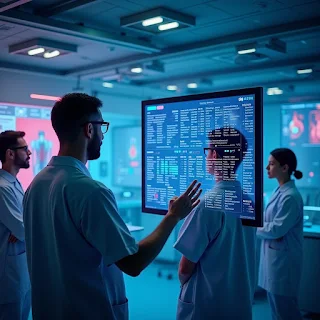🌟 A groundbreaking study by researchers from Harvard Medical School and Stanford University reveals that OpenAI’s o1-Preview AI model could surpass doctors in diagnosing complex medical conditions. 🚀.
Revolutionary Results
In comprehensive diagnostic tests, o1-Preview achieved an accuracy rate of 78.3%, a significant leap compared to earlier versions. In a direct comparison of 70 cases, its accuracy soared to 88.6%, far outperforming GPT-4's 72.9%.
📈 The model excelled in medical reasoning, scoring high in 78 out of 80 cases on the R-IDEA scale, compared to 28 cases by expert doctors and 16 by residents.
Breaking Barriers in Healthcare
Dr. Adam Rodman, a co-author of the study, shared his enthusiasm on X (formerly Twitter):
"This is the first time I’ve promoted an unreviewed draft because the findings are transformative for medical practice."
The model handled 25 highly complex scenarios designed by specialists, scoring 86%, more than double what doctors achieved using GPT-4 or traditional methods.
🔴 Limitations Remain: The model struggles with probability estimation. For example, it overestimated pneumonia risks at 70% compared to the standard range of 25-42% .
AI & Medicine: The Road Ahead
While o1-Preview excels in critical thinking, OpenAI admits current training is far from optimal, requiring 100–1000 times more data for full potential. Researchers also emphasize the need for real-world clinical trials and stronger tech infrastructures to foster collaboration between AI and doctors.
💡 Despite impressive performance, Dr. Rodman cautions:
"Don’t ditch your doctors for o1. This is a benchmark study, not a reflection of real-world healthcare."


